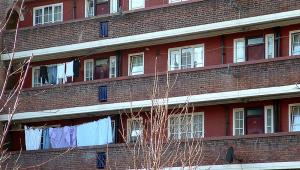In an unusual step, the cross-party committee examined the policy ahead of implementation, scrutinising information from the Department for Communities and Local Government.
Last year, the government struck a deal with the National Housing Federation to bring in the controversial plan, which will see housing associations extend Right to Buy privileges to all their tenants and take the lead building properties to replace those that are sold off. In return, the government will fund the cost of the discounts, most likely by requiring ‘high value’ council properties be sold off.
Provision to implement this voluntary agreement is included in the Housing and Planning Bill 2015-16 due to return to the House of Commons next week.
Publishing its findings today, the PAC highlighted a lack of clarity around how the policy would be funded or what its wider financial impact would be.
PAC chair Meg Hillier said the government should be “embarrassed” by the report’s findings.
“Extending Right to Buy will affect many thousands of people yet the department has failed to provide basic information to support its stated aims. Instead we have heard vague assertions about what it will accomplish and how,” she said.
“The approach to paying for this policy seems to be entirely speculative. On the basis of evidence heard by our committee, there are no costings or workings out. We are not talking about a ‘back of an envelope’ calculation – there is no envelope at all.”
She added that “scant regard” had been paid to the practical impact of the policy on social housing tenants or the likely change to tenure mix. Although the policy proposes replacing the social housing units sold under Right to Buy on a one-to-one basis, the PAC noted this does not have to be on a like-for-like basis and replacement properties do not have to be in the same area.
“We can form our own views about the government’s motives for [the extension of Right to Buy] but Parliament and the public are being asked to take a leap of faith about how this will stack up financially and that is completely unacceptable,” Hillier said.
“The department has not made a diligent and credible case for this policy. The PAC follows the tax pound and so far all we have are assertions that it will be fiscally neutral.”
The committee called on DCLG to publish a full impact assessment of the policy, including the impact on Housing Benefit and Universal Credit as well as a full analysis of how it will be funded and the attendant financial risks.
A DCLG spokesman said: “This government makes no apology for helping people into homeownership. Our voluntary agreement with housing associations will mean 1.3 million tenants will have the chance to own their own home, while every home sold will be replaced with a new affordable property.
"We are currently working jointly with the housing association sector, and are running a pilot to assess the operation of the scheme and have always been clear we will set out further information.”
The Local Government Association said it shared the PAC’s concern about the impact on local areas.
“[We] have opposed proposals for it to be funded by forcing councils to sell much needed housing, particularly as the Housing and Planning Bill will give the secretary of state the power to determine the definition of “higher value” for every local area,” said vice chair Sharon Taylor.
“We are urging MPs to vote for a vital amendment to the Housing and Planning Bill – passed by the House of Lords – when it returns to the Commons next week. It will mean councils retain sufficient funds to replace any higher value home they are forced to sell to fund the policy one-for-one and with a tenure that best meets local need.”
According to DCLG, regulations on what constitutes a higher value home will be subject to full Parliamentary scrutiny.



















